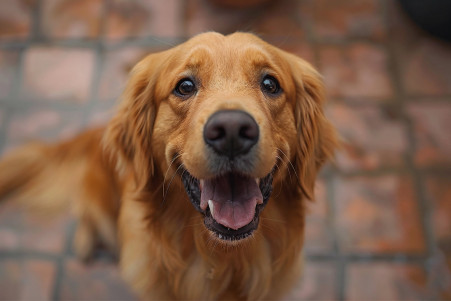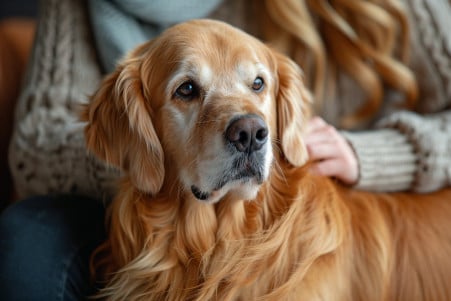Why Do Dogs Shake After Surgery? Causes and Comfort Tips
23 April 2024 • Updated 23 April 2024

If you've recently picked up your dog from surgery, you may have noticed that they're shaking or trembling. But why does this happen, and what can you do to make your dog more comfortable? Dogs shake after surgery for a number of reasons, including the aftereffects of anesthetic drugs, postoperative pain and anxiety, and a drop in body temperature. Comforting your dog, keeping them warm, and administering any medications they've been given can help reduce shaking.
Shaking and shivering are common side effects of surgery, but there are a number of reasons why your dog may be experiencing them. Below, we'll take a look at the most recent veterinary studies that have investigated the physiological and psychological reasons behind why dogs shake after surgery. By the end of this article, you'll have a better understanding of what your dog is going through and how you can help them have a more comfortable, less stressful recovery.
Why do dogs shake after surgery?
Anesthesia and Medication Side Effects
The use of general anesthesia and other medications during surgery can lead to shaking in dogs. While anesthesia can cause dogs to feel groggy or shaky after surgery, these side effects are typically short-lived and will resolve with rest, according to Atlantic Coast Vet.
PetMD notes that shaking can be a result of the effects of anesthesia drugs on the nervous system and temperature regulation in the body. As the drugs start to wear off, dogs may start to shiver due to hypothermia. All Friends Vet Hospital adds that anesthesia affects the nervous system, which can lead to temporary issues with standing and walking after surgery.
That said, these side effects of the drugs used during surgery are typically short-term. Most dogs will stop shaking within a few days as the anesthesia leaves their system. That said, PetMD explains that if shaking lasts longer, it could be a sign of an underlying issue that requires a vet visit. Some dogs may also be more sensitive to anesthesia and as a result, may experience more severe shaking.
To help ensure your dog has a successful recovery, it’s important to make sure you follow your vet’s post-op care instructions to a T. As Atlantic Coast Vet points out, never give your dog any human medications without first getting the green light from your vet, as they can be toxic. It’s also important to make sure you give your dog the medications your vet prescribes for pain and to prevent infection.
Pain and Discomfort: Causes and Management of Post-Surgical Shaking
Pain and discomfort from the surgery can be a reason for shaking in dogs after surgery. According to PetMD, pain is one of the main causes of shaking after surgery. Therefore, it is important to manage your dog's pain as directed by your vet to help reduce this post-surgery symptom.
GoodRx explains that changes in behavior or mood, like shaking, low energy, or a lack of appetite, can be signs that your dog is in pain after surgery. If your dog's shaking persists or if you notice any other symptoms, it's important to call your vet right away.
You can also help your dog feel more comfortable and less anxious during their recovery by making sure they have a safe, quiet space to rest. According to Riverside Vets, this can include providing them with a soft place to lie down, petting them gently, and engaging them in calming activities.
Anxiety and Stress: Psychological Factors Contributing to Post-Surgical Shaking
The stress and anxiety associated with the surgical experience and recovery process can manifest as shaking or trembling in dogs. According to the FAQs for Post Surgery at Pet Resource Center of Kansas City, your pet does not understand they had surgery, and hovering over them may increase their anxiety. It is crucial to create a calm, familiar environment for the dog during recovery to help minimize anxiety-related shaking.
The Gaithersburg Vet notes that sleepiness and shaking in your dog are normal side effects that will go away with rest. However, GoodRx warns that changes in behavior or mood, such as panting, pacing, or refusing to eat or drink, may indicate your dog is experiencing excessive stress or anxiety.
Gentle, low-impact activities or distractions like soft bedding, gentle petting, and calming music can help soothe an anxious dog during the recovery period. In cases of severe anxiety-related shaking, the veterinarian may recommend anti-anxiety medication or supplements to help your dog feel more comfortable.
Monitoring and Addressing Prolonged Shaking: When to Seek Veterinary Attention
It is important to monitor your dog’s shaking during the post-operative recovery period. According to Trends Tracks, most dogs will have stopped shaking within a few days as the anesthesia leaves their system. However, Parliament Animal Hospital cautions that if it has been a while since the surgery and your dog is still shaking, this is not normal.
Prolonged shaking may be a sign of an underlying issue that will require a vet recheck. PetMD notes that while shaking is common in the days following surgery, if it continues, it could be a sign of a more serious issue. This is especially true if it is accompanied by other symptoms like a fever, lethargy, loss of appetite, or discharge from the incision site, which could be a sign of an infection or another issue.
If your dog’s shaking doesn’t go away or if you notice any other concerning symptoms, it is important to contact your vet right away. While Windsor Vets notes that a dog’s owner can help comfort their dog during recovery, if the shaking is ongoing, it will require professional attention.
Comfort Measures: How to Make Your Dog Comfortable After Surgery
Ensuring that your dog has a comfortable, safe space to recover in is important. As noted by PetHelpful, some dogs may experience shivering and a lack of appetite after surgery due to the lingering effects of anesthesia, which can make them feel drowsy and "out of it." These symptoms are normal and can be expected to resolve within a day or two with rest.
Riverside Vets recommends keeping your dog in a small, quiet space like a laundry room and gradually increasing their activity level as they recover. Feeding your dog small, frequent meals and making sure they have access to plenty of water will also help ensure that they stay nourished and hydrated.
To help your dog stay warm, PetHelpful advises that you provide them with soft bedding, blankets, or heating pads (with caution). In addition, petting, talking, or even reading to your dog can help them feel more comfortable. As noted by Franklin Vet, the love and support of their human can be one of the most important factors in a dog's recovery.
By making sure that your dog has a safe, supportive space and that you're there to care for them, you can help them feel more comfortable and secure as they heal. With time and the help of your vet, most dogs will be able to recover and get back to their normal selves.
Conclusion: How to Help Your Dog Have a Smooth and Comfortable Recovery
This article has explored the many different reasons that dogs may shake after surgery, including the effects of anesthesia and medications, pain and discomfort, and anxiety and stress. It has also highlighted the importance of following your vet's post-operative care instructions and keeping a close eye on your dog's recovery.
Making sure that you are providing your dog with the pain relief, care, and support that they need during their recovery is important and can make a big difference in how well they recover. You should also make sure that you are listening to your gut and that you are reaching out to your vet if you have any concerns or if your dog's shaking continues for longer than you think it should.
With time, care, and the support of your vet, most dogs will be able to recover from surgery and get back to their normal selves. By making sure that you are putting your dog's comfort and well-being first, you can help make sure that they have a smooth and successful recovery.


